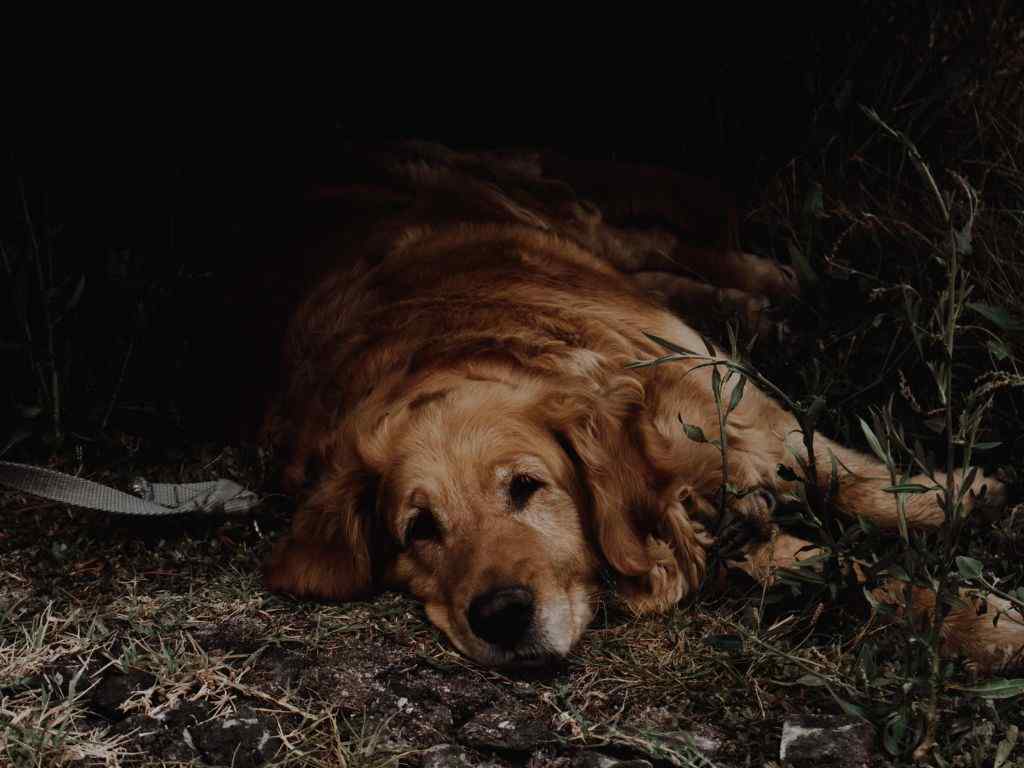Dogs are extremely loyal animals and attached to their owners and families. They develop strong emotional bonds with us and, therefore, when they lose a loved one, whether human or another pet, they also feel the pain of that loss.
Knowing how a dog experiences grief is important for all owners, because, like us, they also experience this phase, each in their own way and according to their personality and bond with the deceased person.
Even though they are unable to verbalize their feelings, dogs express their grief in different ways, from behavioral changes to physical manifestations, as in the case of the dog Greka , who takes a small ball to her deceased owner’s altar every day.
Knowing how dogs experience grief allows us to not only recognize their suffering, but also offer the support and comfort necessary to help them overcome this difficult phase.
In this article, we will explore the different ways in which dogs experience grief, the signs they may present and how we can help them during this challenging time, further strengthening the bonds that unite us with these faithful companions.
How does the dog experience grief?

Image: Pexels
If in humans, grief generates a series of somatic effects on the body and organism, in dogs the story is not very different.
Researchers came to the conclusion that the symptoms are similar when studying how dogs experience grief.
In an interview with the English newspaper The Guardian, Dr. Federica Pirrone, one of the study’s authors, said that dogs are very emotional and create strong bonds with members of the family group.
“This means they can be very distressed if one of them dies and efforts must be made to help them deal with this feeling,” he commented.
In the study, the responses of 426 adults who responded to an online questionnaire about dog grief were analyzed. All participants experienced the loss of a dog while another was alive.
The results showed that 86% of owners observed behavioral changes in the surviving dogs.
“Dogs form emotional bonds and therefore the loss of a pet in your home can cause behavioral changes, like those we recorded in our study, which overlap with what we normally interpret as grief. Of course, based on our results, we still cannot say whether these dogs were responding solely to the ‘loss’ of an affiliate or to their ‘death’ itself.”
Dra. Federica Pirrone.
How long does a dog’s grief last?

Image: Pexels
Just like with humans, grief is a natural response to the loss of a loved one, whether human or animal.
In dogs, the duration and intensity of how the dog experiences grief can vary depending on a series of factors, such as the animal’s personality, its relationship with the deceased individual and even the circumstances of the loss.
There is no time limit for how the dog experiences grief, a deadline for the dog to completely overcome this phase: cases can vary from days to months.
Several veterinarians have observed that dogs tend to have a longer period of mourning if they were attached to the individual who died, regardless of whether it was human or another animal.
During this period, your dog is likely to be sad, downcast, not want to play, suffer changes in appetite and even behave more reclusively.
By knowing how the dog experiences grief, owners can find ways to help them overcome this phase, always respecting the animal’s time.
How do you know if a dog is grieving?

Image: Pexels
Among the clearest signs of how the dog experiences grief are behavioral changes. The lack of interaction, depression, loss of appetite, even showing a certain amount of aggression can be signs that your dog is going through mourning.
Some dogs may even get even closer to their owners, seeking protection and company to get through this phase.
The following are signs of canine mourning:
- The dog became apathetic;
- He is sadder than usual;
- It has isolated itself from the other animals in the group;
- He started eating less;
- Has avoided contact with the tutor;
- He has sought even more contact with the tutor;
- Are you more stressed or anxious than normal;
- It has become more aggressive than normal;
- You may be doing your business out of place, etc.
What do dogs feel about their owners?

Image: Pexels
Generally, the relationship between dogs and their owners tends to be deep and emotional. Just like humans, dogs are also social beings and have the ability to form bonds with the humans they live with.
These bonds are formed based on trust, affection and mutual dependence.
An example of this bond between humans and dogs is Hachiko’s film, “Always by Your Side”. The film, based on a true story, features Richard Gere and an Akita.
When Gere has a heart attack and passes away in the middle of class, Hachiko continues to wait for him at the city’s train station every day, until the day of his death.
Is it normal for a dog to be sad when another dog dies?

Image: Pexels
When the owner passes away, the dog can feel the loss deeply, expressing signs of mourning and sadness. In addition to mourning the loss of an owner, dogs may also experience grief when another dog close to them dies.
Dogs are social animals and establish hierarchies and relationships with other members of their pack, regardless of whether it is made up of other dogs from the same household or other pets.
That’s why it’s important to understand how dogs experience grief.
When a dog from the same social circle close to them dies, it is normal to expect the surviving dog to feel the loss and absence of their companion.
Dogs express sadness in the same way they would feel grief for an owner, and can exhibit behaviors such as:
- Search for the deceased partner;
- Loss of appetite;
- Reclusive behavior;
- Whining or frequent vocalization;
- Less interest in playing or interacting with other dogs.
If your dog has lost an individual from its group, do not force it to perform physical activities. Stay close and pay attention to the animal’s behavior.
If you know how the dog experiences grief, you can consult a veterinarian for better guidance on what to do in this case.
What can you do to shorten your dog’s grieving process?

Image: Pexels
As Cindy Lauper would sing: “Time after time”. Unfortunately, each dog will respond in its own way and in its own time. The grief recovery period tends to happen slowly, little by little.
At this stage, it is important that you are by your companion dog’s side, either petting him, giving him attention, but not forcing him to do physical activities or go for a walk, if he doesn’t want to.
Other measures:
- Try to maintain the routine whenever possible, but remember not to force him to leave the house and go for a walk, for example;
- Leave him in his own environment: if he wants to be in his corner and sleep, leave him there for as long as he wants;
- Don’t neglect your dog’s nutrition and hydration. It is possible that he will lose his appetite, but do not let this last more than two days;
- If he insists on not eating, it is recommended to take him to the vet. He will know how to act and will give you some guidance so that he can start eating again;
- It is possible that during the time of mourning, the animal’s resistance drops, which can cause other diseases to appear;
- Let the surviving dogs establish their own routines after the death of one of the individuals in the group;
- If possible, take the survivor so they can say goodbye to the individual, especially if they are the animal’s guardian;
- Give lots of affection and attention . He will need to know he is not alone.
All the information in this text can contribute to understanding how dogs experience grief. Furthermore, always remember to respect the animal’s time and space.







